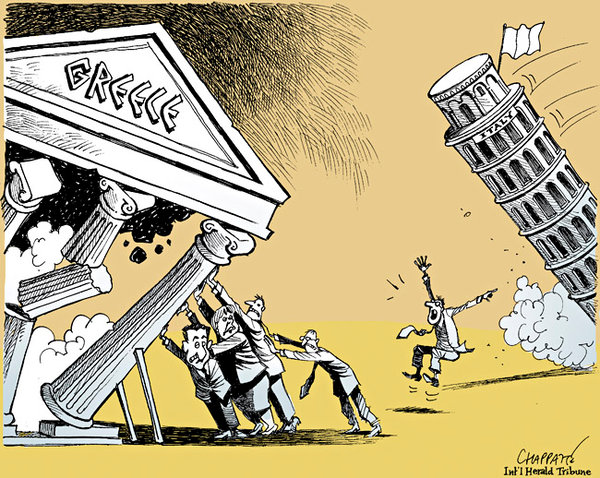
It’s interesting that when the European project kicked off it was against the backdrop of the end of the second World War. Europe had seen two world wars within a generation with much resultant suffering and destruction. There must have been an urgency therefore to stop a third from happening on the continent by creating a pan national entity that binds many nations together.
Perhaps the thought was that if one nation desires to start a campaign of aggression against another – if the cost of the aggression would hit home very quickly because of mutual economic dependence then the desire for such an aggression would quickly fizzle out in the home nation.
Further since the any kind of rocking of the boat by one nation would result in many nations being affected by monetary union other nations would be more willing to stabilize the said belligerent by whatever means short of war (which would result in further loss) that war in Europe would be difficult if not impossible.
However as we have seen in the recent crisis Europe’s great weakness was that it was a monetary union without being a fiscal one. Each nation decided to spend as it wishes and borrow what it pleases and since the block was seen as a whole interest rate spread across widely divergent economic powers were narrow resulting in a glut of debt. As expected the stronger economic powers of the union came to the rescue (if the term could be used at all) of weaker powers that started to stagger under enormous debt as “Europe” was at stake. However this “help” was not without condition.
Spendthrift states like Greece had to implement austerity packages and cause suffering to it’s citizens to be eligible for the said “help”. Vastly unpopular measures were taken within the nation to protect it from “the brink of bankruptcy” and much was done to keep Fortress Europa holding strong against the rest of the world.
Of course, the last time the term Fortress Europa was used was by one A. Hitler, who coined the phrase to the large amount of land under Nazi occupation.
Which brings us back to the Second World War and it’s causes which could be traced back (among other things) to the costly reparations imposed on Germany after it’s defeat. This created economic austerity in the Weimar Republic which ultimately resulted in the Nazi party and Mr. Hitler coming into power in 1933, proclaiming boldly to the beleaguered people of Germany that “Within four years unemployment must be finally overcome”. He made good his promise and the Germans hailed him as their saviour. Many followed him wholeheartedly into destruction.
The moral of the story of course is this. That whenever a people feel put under a heavy economic yoke by an entity that they see as external to their nation such as the big European powers, ultra nationalism emerges as the response and they become willing to follow whoever speaks up for the perceived injustice to the nation. This creates fertile soil for conflict, something that the architects of the Economic Union of Europe tried perhaps to avoid above all.
I wonder what Hitler would have said about all this. Oh wait, he has. (Be warned! Expletives await.)
